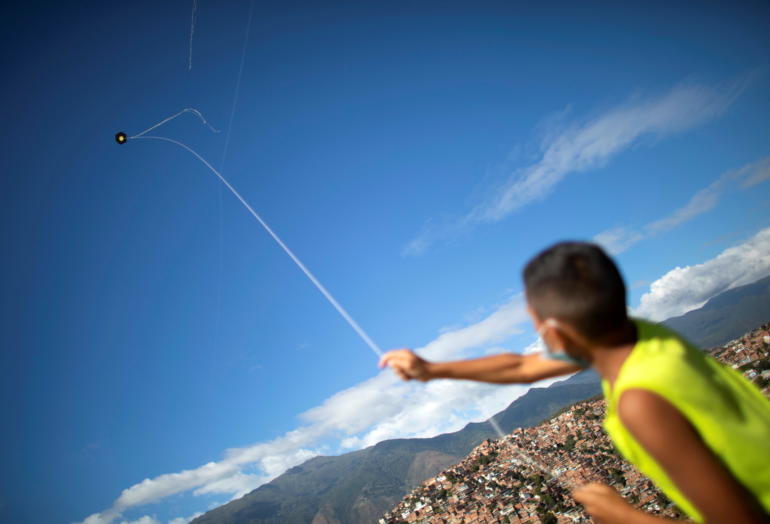The municipality of Petare in Caracas has been celebrating 400 years since its foundation this week. The shantytown is one of the biggest in the world. Its residents say it’s sometimes negative reputation does not tell its full story. Stephen Gibbs explains.
Outsiders always struggle to find the right words to describe Petare—this city within a city, on a hillside in Caracas.
Some say it’s a “working-class community.”
Others call it a “slum”—one of the biggest in the world.
But for Fanny Machado, who has lived here for all of her 48 years, it’s home.
“I like it. I like this area, my home, my friends, because there are lots of people here that will lend a hand in difficult times. Not just family, there are people here that I grew up with. We help each other out,” Machado said.
Like many of her neighbors, Fanny – who lives here with her four children – feels a particular attachment to her home for another reason.
Her family didn’t buy the house—they built it. In her case, it was constructed around 60 years ago by an uncle.
And that is the story of Petare.
It was founded in the 17th century just East of Caracas.
But it changed beyond recognition from the 1930s onwards – when mass immigration from the countryside to an increasingly oil-rich capital city began – and uncontrolled amateur construction got going.
Now the municipality has some serious problems.
There’s a persistent lack of running water, power cuts, poverty, and crime.
Petaredoes have a formidable reputation for being a dangerous place. And for that reason, many people from the main city of Caracas have never been here.
That’s a mistake, say some – including the activists and charity workers that organized this festival to mark the municipality’s 400th birthday.
“Probably 70 percent of Venezuelans live in these kind of conditions. And it’s true that many Venezuelans don’t even know how are the conditions in Petare, and places like this,” said Pedro Mendez of Alimenta la Solidaridad.
Nearly 400 kites were launched, with varying success, to celebrate each year since the municipality’s founding.
And if there was a message from it all, it was: don’t look down on this hand-built metropolis.
Because it really is as much a part of Venezuela, as anywhere else.
 CGTN America
CGTN America
 Petare, Venezuela celebrates 400 years
Petare, Venezuela celebrates 400 years
